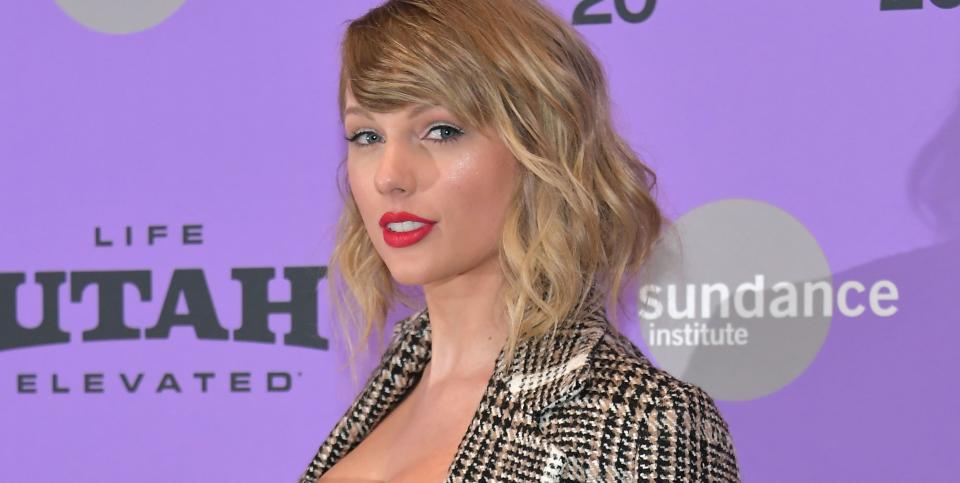Taylor Swift Talks Candidly About Overcoming Struggle With Eating Disorder

Taylor Swift's Miss Americana documentary did more than touch on Swift's foray into politics. Swift spoke for the first time in the film about overcoming her struggle with an eating order; she addressed her experience more fully to Variety in her interview with the outlet about the film.
Swift said during a voiceover in the film that seeing photos of herself could trigger her to starve herself in the past. “[Although] it’s only happened a few times, and I’m not in any way proud of it,” there have been times in the past when Swift has seen “a picture of me where I feel like I looked like my tummy was too big, or…someone said that I looked pregnant…and that’ll just trigger me to just starve a little bit—just stop eating.”
It affected her stamina on her 1989 tour, she later said: “I thought that I was supposed to feel like I was going to pass out at the end of a show, or in the middle of it,” she said in the film. “Now I realize, no, if you eat food, have energy, get stronger, you can do all these shows and not feel [enervated].”

Swift "doesn't care so much now," per Variety, if someone comments on a weight gain. She has reconciled “the fact that I’m a size 6 instead of a size double-zero.” During her double-zero days, she said she'd have a defense if anyone expressed concern that she was too skinny. She'd say, “‘what are you talking about? Of course I eat. ….I exercise a lot.’ And I did exercise a lot. But I wasn’t eating.”
Swift explained further to Variety that she initially didn't know whether she'd be ready to speak about her experience in the film. “I didn’t know if I was going to feel comfortable with talking about body image and talking about the stuff I’ve gone through in terms of how unhealthy that’s been for me—my relationship with food and all that over the years,” she said. “But the way that Lana [Wilson, the film’s director] tells the story, it really makes sense. I’m not as articulate as I should be about this topic because there are so many people who could talk about it in a better way. But all I know is my own experience. And my relationship with food was exactly the same psychology that I applied to everything else in my life: If I was given a pat on the head, I registered that as good. If I was given a punishment, I registered that as bad.”
“I remember how, when I was 18, that was the first time I was on the cover of a magazine,” she continued. “And the headline was like ‘Pregnant at 18?’ And it was because I had worn something that made my lower stomach look not flat. So I just registered that as a punishment. And then I’d walk into a photo shoot and be in the dressing room and somebody who worked at a magazine would say, ‘Oh, wow, this is so amazing that you can fit into the sample sizes. Usually we have to make alterations to the dresses, but we can take them right off the runway and put them on you!’ And I looked at that as a pat on the head. You register that enough times, and you just start to accommodate everything towards praise and punishment, including your own body.”
“I think I’ve never really wanted to talk about that before, and I’m pretty uncomfortable talking about it now,” she said. “But in the context of every other thing that I was doing or not doing in my life, I think it makes sense [to have it in Miss Americana].”
If you or any loved one is seeking help overcoming an eating disorder, you can call the National Eating Disorders Association's hotline at 800-931-2237 or visit their site here.
You Might Also Like

